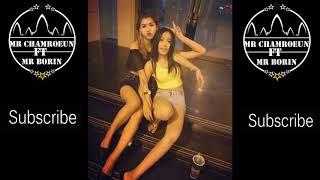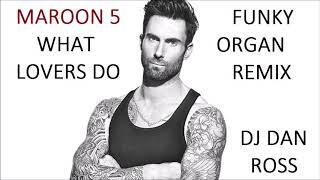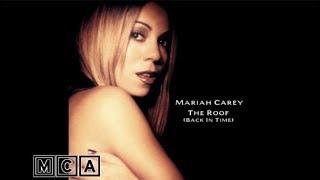Chord ticker kindly provided by Chordify.net.
FREE eBooks for musicians: http://www.jhqbooks.com
When a professor deciphers Shakespeare, Proust or Wolfe etc in the classroom, he/she analyzes the text with respect to such things as the text's symbolic structure and hidden semantics.
The value-added features of this track are analogous to what a professor does: the track exposes hidden structures in the music.
When a musician plays publically, such as in a club, he/she often plays music composed by others. He/she also utilizes the hidden musical structures to construct lines, sometimes at an instant. In such case, he/she is not plagiarizing but he/she is improvising.
This track can be used in two ways: as entertainment, or for professional training (or both). For those of you who are already veteran musicians, you are likely just using these tracks as entertainment. Some of you, however, are also learning the professional side of the music business. So, I will be explicit, and reference how these tracks can be used for professional training.
1. This track, for example, comprises three parts. The first part is the traditional backing track. The lead Guitar has been manually removed thereby transforming the track into a backing track.
2. The second part, in addition to the chord ticker and visual metronome, most of the tracks have synced “clicks” manually embedded into the music. You can use the click track for timing training.
3. Since a performing musician typically lives in two worlds – the world of beat and the world of harmony – I have amplified the drummer’s kick drum in all parts, as the kick drum is usually (but not always) working with the main beat.
4. The second world for the working musician is timing AND harmony. A chord ticker is embedded in all parts with an eye towards understanding the key harmonic elements in the song.
5. Moreover, while the left side of the metronome displays bars and beats. (Good for timing.) The right side displays the song structure e.g., Verses, PreChorus, Choruses, etc. The right side of the metronome may also be used to make sense of the harmonic elements of the composition.
6. The third section is the “Reference” track. It is an excerpted recording of a professional musician playing to the music. You will hear a bass/guitar/drums, therefore. You can use the reference section for ideas and inspiration.
7. If you intend to play professionally, then your future is in clubs and recording studios. In both cases – and especially the recording studios – you will need to be as versatile as possible. Additionally, you may find yourself playing genres you personally do not like. Depending on where you do your recording, however, studio time can be hundreds of dollars an hour. So, a musician who makes mistakes is costing someone (probably the producer) a lot of money. You want your reputation to be that you are someone who gets it right the first time and that you can play anything convincingly. Otherwise, you will not get callbacks.
8. So, the backing tracks on this channel can be used simply for entertainment. However, they also can be used for professional training: to improve timing, to facilitate harmonic comprehension and to gain exposure and facility with multiple genres.
WHO IS WIL GORDON?
Learning his craft in Philadelphia's biker bars, Wil is now old, arthritic and proud of his highly diseased mind. Moreover, from his studio in Buffalo New York, he enjoys giving exposure to young musicians and, in general, to musicians who deserve more exposure than they have gotten.
JamHQ.com's PHILOSOPHY
Music is a gift from above, and whether you are a listener, instrumentalist or a producer, et cetera, if you love music, then you are a musician. Some of us are lucky enough to be instrumentalists, but we are all musicians.
Think about this, please, music-loving (and its physical expression through dance) seems to be something that is uniquely human. From the times of the so-called caves, humans have used music for worship, work and play. What other animal does this? Moreover, in the 21st century, you can find a global musician's community online. Youtube is currently a digital cave for many things and among them is the sharing of the divinity that is music.
Lastly, JHQ MUSIC believes that music and music-loving can only occur in a community. In the 21st century, the community is global. Specifically, this channel is dedicated to building a community - a community of music lovers.
#jamhqbackingtrack
#jamhqmusic
#jamhqbackingtrack
5SS7CDZUWDYW0LGR
FREE eBooks for musicians: http://www.jhqbooks.com
When a professor deciphers Shakespeare, Proust or Wolfe etc in the classroom, he/she analyzes the text with respect to such things as the text's symbolic structure and hidden semantics.
The value-added features of this track are analogous to what a professor does: the track exposes hidden structures in the music.
When a musician plays publically, such as in a club, he/she often plays music composed by others. He/she also utilizes the hidden musical structures to construct lines, sometimes at an instant. In such case, he/she is not plagiarizing but he/she is improvising.
This track can be used in two ways: as entertainment, or for professional training (or both). For those of you who are already veteran musicians, you are likely just using these tracks as entertainment. Some of you, however, are also learning the professional side of the music business. So, I will be explicit, and reference how these tracks can be used for professional training.
1. This track, for example, comprises three parts. The first part is the traditional backing track. The lead Guitar has been manually removed thereby transforming the track into a backing track.
2. The second part, in addition to the chord ticker and visual metronome, most of the tracks have synced “clicks” manually embedded into the music. You can use the click track for timing training.
3. Since a performing musician typically lives in two worlds – the world of beat and the world of harmony – I have amplified the drummer’s kick drum in all parts, as the kick drum is usually (but not always) working with the main beat.
4. The second world for the working musician is timing AND harmony. A chord ticker is embedded in all parts with an eye towards understanding the key harmonic elements in the song.
5. Moreover, while the left side of the metronome displays bars and beats. (Good for timing.) The right side displays the song structure e.g., Verses, PreChorus, Choruses, etc. The right side of the metronome may also be used to make sense of the harmonic elements of the composition.
6. The third section is the “Reference” track. It is an excerpted recording of a professional musician playing to the music. You will hear a bass/guitar/drums, therefore. You can use the reference section for ideas and inspiration.
7. If you intend to play professionally, then your future is in clubs and recording studios. In both cases – and especially the recording studios – you will need to be as versatile as possible. Additionally, you may find yourself playing genres you personally do not like. Depending on where you do your recording, however, studio time can be hundreds of dollars an hour. So, a musician who makes mistakes is costing someone (probably the producer) a lot of money. You want your reputation to be that you are someone who gets it right the first time and that you can play anything convincingly. Otherwise, you will not get callbacks.
8. So, the backing tracks on this channel can be used simply for entertainment. However, they also can be used for professional training: to improve timing, to facilitate harmonic comprehension and to gain exposure and facility with multiple genres.
WHO IS WIL GORDON?
Learning his craft in Philadelphia's biker bars, Wil is now old, arthritic and proud of his highly diseased mind. Moreover, from his studio in Buffalo New York, he enjoys giving exposure to young musicians and, in general, to musicians who deserve more exposure than they have gotten.
JamHQ.com's PHILOSOPHY
Music is a gift from above, and whether you are a listener, instrumentalist or a producer, et cetera, if you love music, then you are a musician. Some of us are lucky enough to be instrumentalists, but we are all musicians.
Think about this, please, music-loving (and its physical expression through dance) seems to be something that is uniquely human. From the times of the so-called caves, humans have used music for worship, work and play. What other animal does this? Moreover, in the 21st century, you can find a global musician's community online. Youtube is currently a digital cave for many things and among them is the sharing of the divinity that is music.
Lastly, JHQ MUSIC believes that music and music-loving can only occur in a community. In the 21st century, the community is global. Specifically, this channel is dedicated to building a community - a community of music lovers.
#jamhqbackingtrack
#jamhqmusic
#jamhqbackingtrack
5SS7CDZUWDYW0LGR
- Category
- Funky












